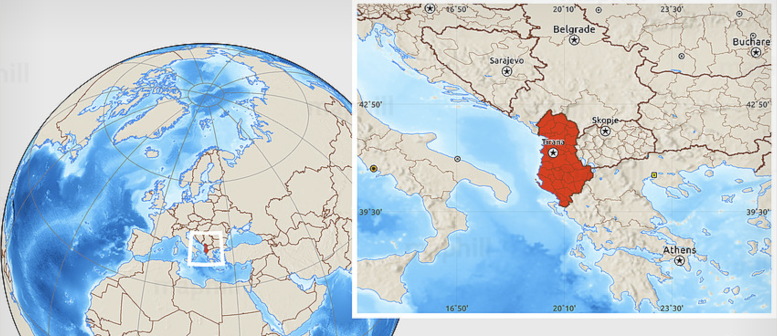Albania’s Ministry of Health has put forth a plan to update and refine rules for the production of industrial hemp, but would limit business activity in the extracts sector to experienced companies from other European countries, and limit trade of those products to exports.
A National Agency for the Control and Monitoring of the Cultivation and Processing of the Cannabis Plant would be set up to oversee the production of cannabis for industrial and medical purposes, according to the draft bill.
All marijuana and hemp extracts – including CBD and other minor cannabinoids derived from hemp – would be considered medical cannabis products, requiring a license to produce.
Non-extract products
While those products would be restricted to exports, local production and sales of hemp seed and fiber products would be possible under the draft law, according to Joe Spencer, Chairman of the National Albanian Hemp Industry Association.
Despite the restrictions, “The draft law is providing us confidence that Albania will finally become part of the international hemp market,” Spencer said.
15-year licenses
The country’s Council of Ministers would begin issuing renewable 15-year production licenses in 2023, with individual entities limited to farming on a maximum of 150 hectares (370 acres). Licensees must be members of the Organization for Economic Co-operation and Development (OECD), and hold at least a 51% interest in a company that grows or produces cannabis.
To qualify, foreign businesses would also be required to prove they have at least $840,000 in capital, have a plan to employ at least 15 people, and pay a fee equal to 1.5% of annual turnover.
Talks since 2016
The cultivation and export of hemp from Albania for seed-based oil and textiles were allowed in the 1970s and 1980s. But the industry collapsed in the early 1990s and dried up altogether after the government officially classified the plant as a narcotic in 1995, strictly prohibiting production.
Hemp was legalized in 2004. The new draft law increases the maximum THC from 0.1% to 0.2%.
The draft bill was announced shortly after the 2022 World Drug Report from the United Nations Office on Drugs and Crime ranked Albania seventh out of 154 countries for the illicit cultivation and distribution of marijuana.
Drug hub
Albania is one of the largest outdoor producers of illegal marijuana in Europe, and has long been a major hub for drug trafficking. Recreational and medical marijuana are controlled substances under Albania’s Law on Narcotic and Psychotropic Substances of 1994, and may not be grown or traded. Efforts by the government to crack down on the illegal trade have been largely ineffective.
The proposed law will be forwarded to Parliament after a public comment period currently open.
Small farmers
Albanian agriculture is based mainly on small family farms and accounts for roughly 20% of total exports. Albania is the world’s 11th largest producer of olive oil. Other crops include medicinal and herbal plants, which bring some $60 million in export income annually, and tobacco, wheat, corn, potatoes, and fruits and vegetables.
Among challenges faced by the farming sector are uncertain land ownership rights, lack of bank credits, and high value-added tax.
Read the full article here

